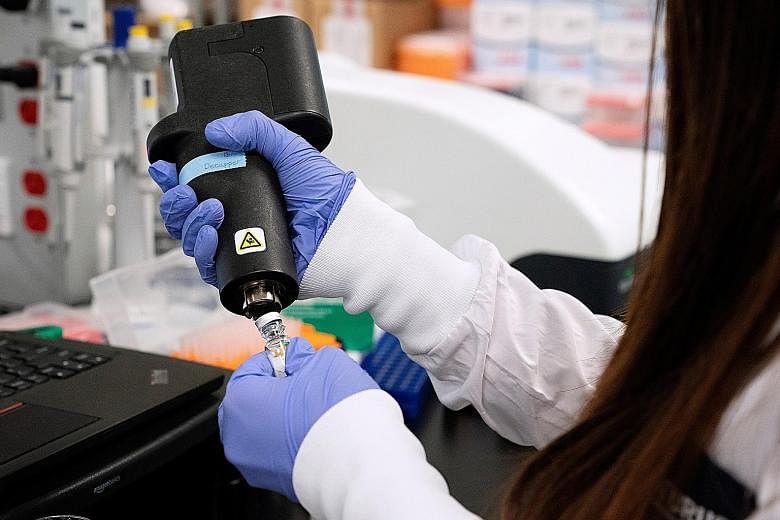The first cohort of volunteers here has received a dose of a coronavirus vaccine jointly developed by Duke-NUS Medical School and United States pharmaceutical company Arcturus Therapeutics.
Arcturus said yesterday that this first phase of the trial involved volunteers aged between 21 and 55, who were injected with a single shot of the vaccine.
Data from this phase of the early-stage trial will be used to select the dosage regimens of the next phase, which will involve those aged 56 to 80, as well as younger adults.
Arcturus president and chief executive Joseph Payne said that based on pre-clinical trials, its vaccine may only need to be administered once, and at a very low dose.
"These favourable attributes could greatly facilitate mass vaccination campaigns necessary to control this global pandemic," he said.
As of last week, more than 250 people here had volunteered for trials of the vaccine, called Lunar-Cov19 - of whom about 100 were selected.
The trial, which is being administered by the SingHealth Investigational Medicine Unit, is expected to last until October.
The Straits Times reported last month that the vaccine was originally slated to begin trials next month, but had been approved ahead of time when pre-clinical trials exceeded expectations.
Lunar-Cov19 contains genetic material called mRNA, which encodes part of the virus.
When injected into a person, it causes the body's cells to begin manufacturing a protein similar to that of the virus, allowing the body to recognise and learn to fight it.
This sets it apart from traditional vaccines which teach the body to recognise the adversary by using a killed or weakened form of the virus.
The global race for a Covid-19 vaccine has intensified in recent weeks, as it is seen by many around the world as the key to reopening borders and economies amid the pandemic.
As of Monday, there were 28 vaccine candidates, including Lunar-Cov19, undergoing clinical trials around the world - two more than just two days before that.
Yesterday, Russian President Vladimir Putin declared that his country had been the first in the world to grant regulatory approval to a Covid-19 vaccine after less than two months of human testing.
But this was almost immediately followed by global health experts calling it "reckless" due to a lack of large-scale trials to prove that the vaccine actually works.
Dr Michael Ryan, executive director of the World Health Organisation's health emergencies programme, had earlier said that an effective vaccine would likely be ready only early next year.












